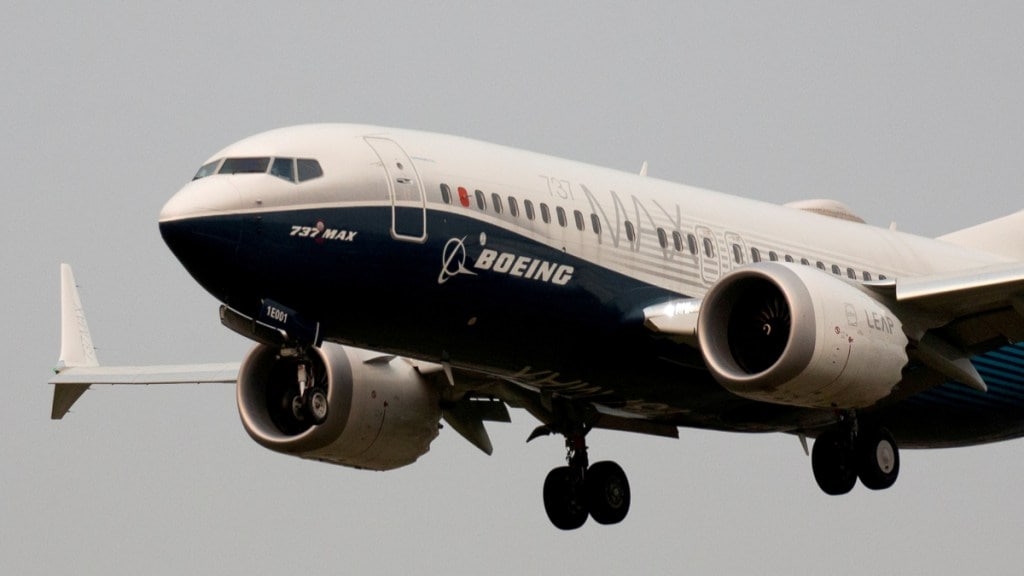Aircraft maker Boeing on Wednesday said that clean fuselage supplies from its vendor Spirit AeroSystems will commence ‘imminently’ allowing it to step up production of the 737 Max aircraft, even as buyers, including Air India and Akasa Air, would have to wait longer for deliveries.
More than two-thirds of Boeing’s finished inventory comprising 225 737 Max airplanes will require fuselage rework, leading to aircraft inventory piling up in the on-going quarter, Brian West, chief financial officer and executive vice president – finance, The Boeing Co, said in an analyst call on Wednesday.
While Boeing executives did not specify a timeline by when Spirit is expected to start delivering faultless fuselages, David L Calhoun, president, chief executive officer and director, The Boeing Co., said, “They (Spirit) know the scope and they’re going to start delivering clean ones (fuselage) imminently. So, we feel good about what they’ve got to do. Of course, the harder work is on our end which is about the finished goods inventory.”
Air India and Akasa Air together have placed orders for more than 240 units of 737 Max. While Air India did not comment, an Akasa Air spokesperson said its operating plans were still on track and that its 20th aircraft is expected by June. “As such there is no significant impact to Akasa that we foresee today,” the carrier added.
Akasa Air is expecting deliveries of 12-16 aircraft per year from next year as part of the total 72 units of the 737 Max aircraft order it placed earlier. It has a total of 19 aircraft in its fleet as of today.
“We’ve been progressing in our early inspection of affected airplanes. The issue is isolated to two specific fittings. The work will impact the timing of our deliveries over the next several months. Unfortunately, the timing of these delivery shortfalls will impact summer capacities for many of our customers, but we feel terrible about that,” Calhoun added.
Boeing has not changed its long-term guidance for 2025-26, which calls for production of the 737 Max to be upped to 50 per month. It is planning to ramp up production to 38 jets per month by June before hitting 42 per month by January 2024 and 52 a month by January 2025.
The average number of deliveries per month in the first half of 2023 is expected to be 30, before picking up pace to 40 per month in the second half.
The 737 had 113 deliveries in the first quarter, up 31% year-over-year, including 53 deliveries in the month of March. Despite the supplier challenge, Boeing is expecting to deliver between 400 and 450 737s this year. “While the high-end of the delivery range is pressured, ultimate performance will be dictated by the pace of the fuselage recovery,” West added.

